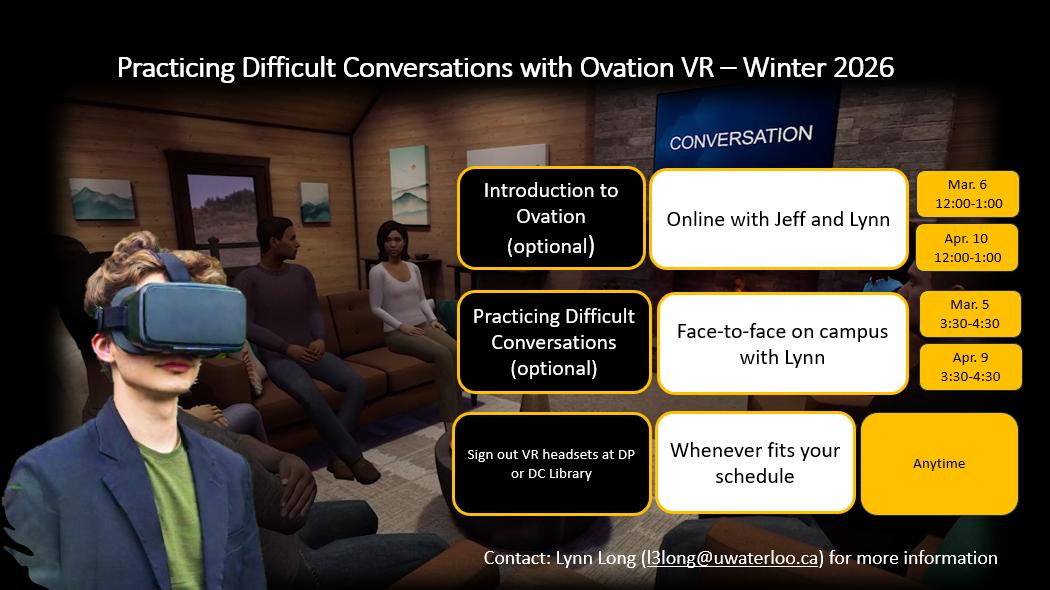Practicing Difficult Conversations with Ovation VR
|
As part of the VR for Workplace Wellbeing initiative. the Conflict Management Office (CMO), in collaboration with the Staff Excellence Fund, are providing all University of Waterloo staff (full-time, part-time, contract, and student staff) with the opportunity to participate in workshops that explore how virtual reality can support you in preparing for difficult conversations. Ovation VR uses AI-driven avatars to simulate challenging scenarios such as performance reviews, job interviews, and conflict resolution. By allowing you to practice these interactions and receive feedback, this immersive tool can help you build confidence and reduce workplace stress.
Individual consultations are also available if you would like personalized support for a specific situation and want to explore how Ovation VR can help you build confidence beforehand. |
Practicing Difficult Conversations with Ovation VR

Our New Name
In order to promote clarity on campus, moving forward, our office will simply be known as the Conflict Management Office.
- Will your services change? No, we will still offer all of the same services that we have in the past.
- Can I book an appointment to discuss an issue related to human rights? Yes, we are one of several offices on campus whose staff are knowledgeable in this area. You can still book an appointment with us to discuss such concerns.
Difficult Conversation Wednesdays
Are you having difficulties with a friend, a classmate, a supervisor, or colleague? Do think you may need to have a difficult conversation? Are you unsure how to begin? Do you wish you had someone to listen and provide feedback as you consider your approach? The staff in the Conflict Management and Human Rights Office are setting aside Wednesday especially for difficult conversations.
-
Email l3long@uwaterloo.ca to set up a time.
If Wednesdays don’t work for you, we are able to meet other days as well.
